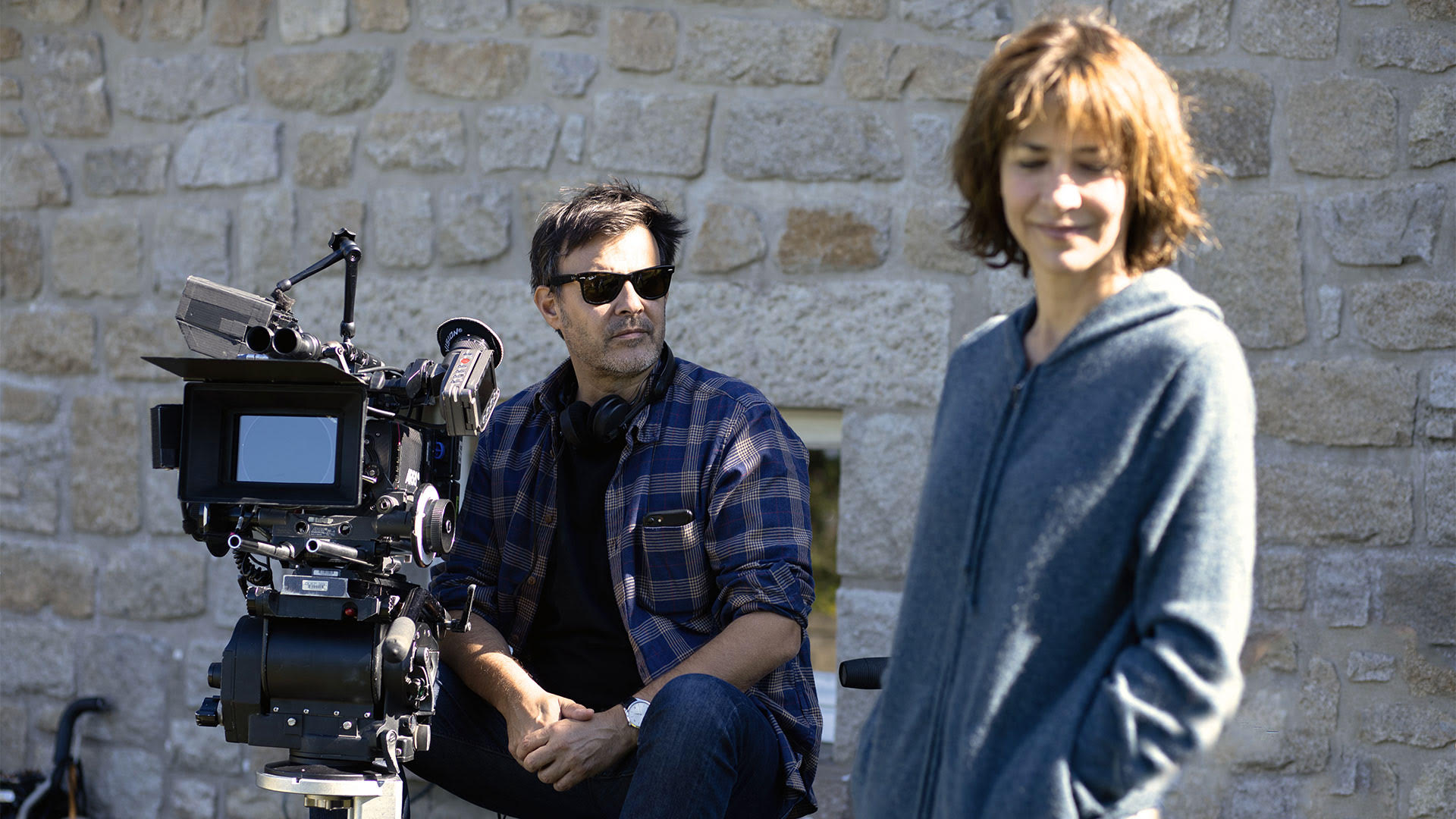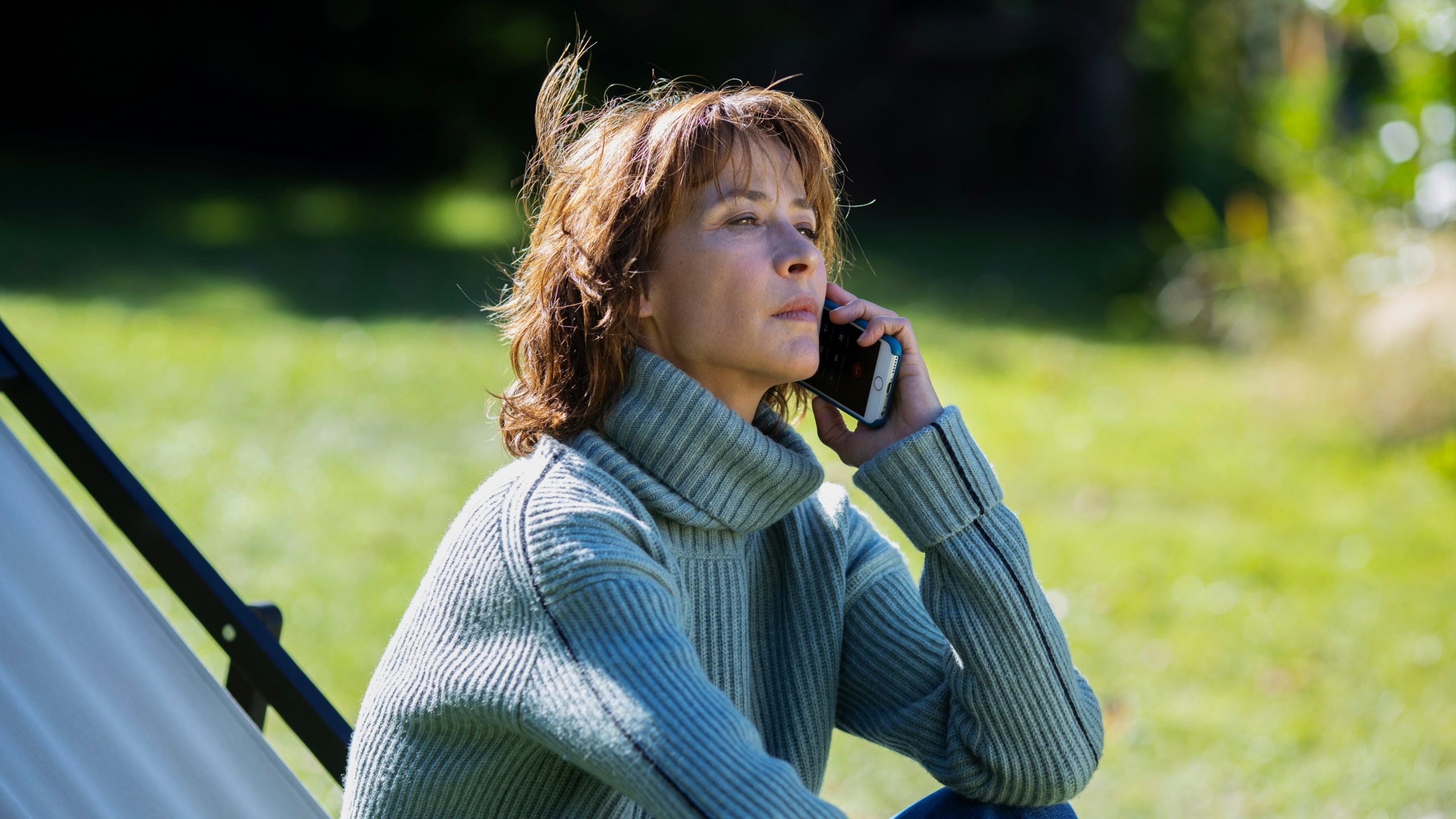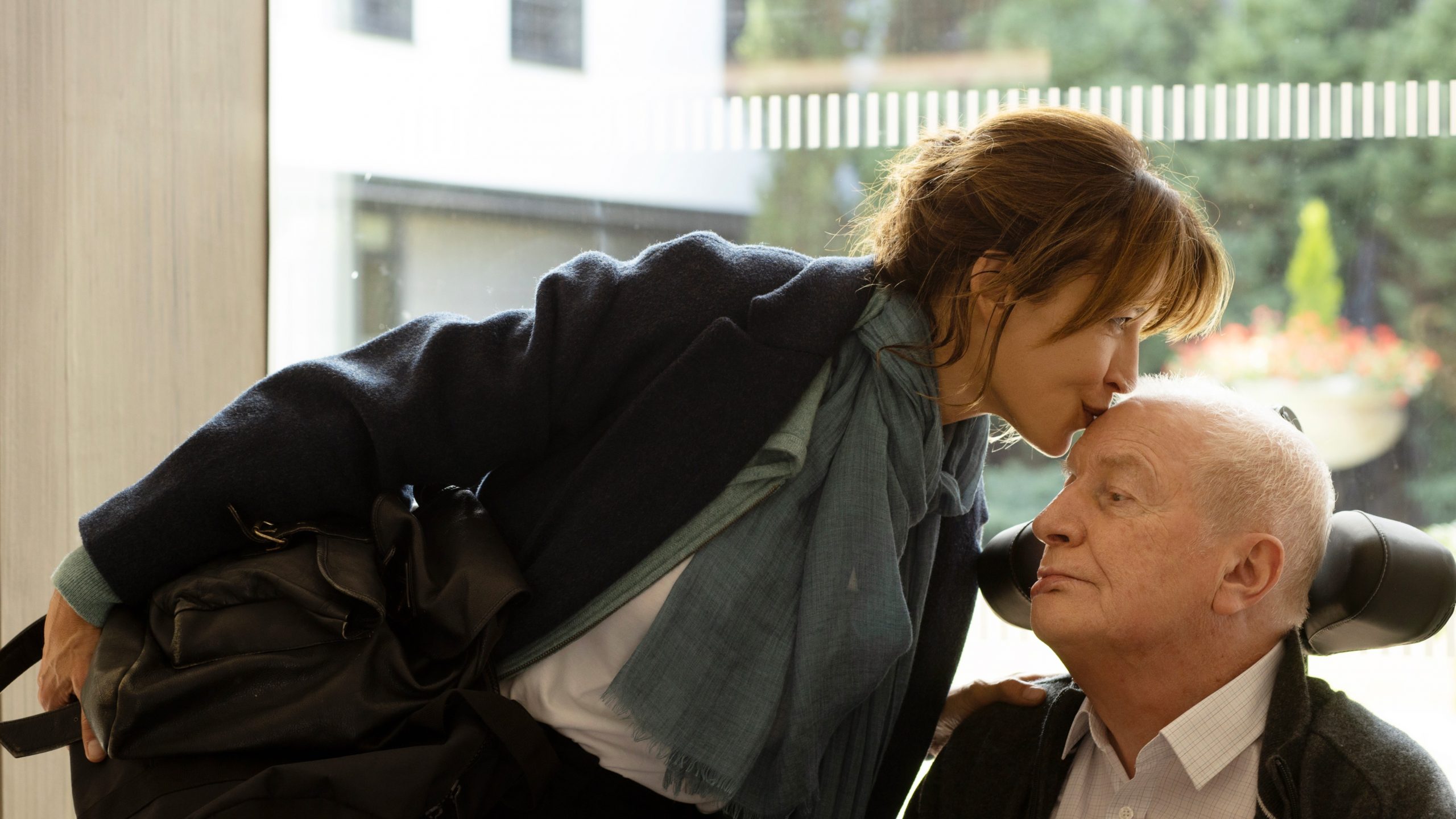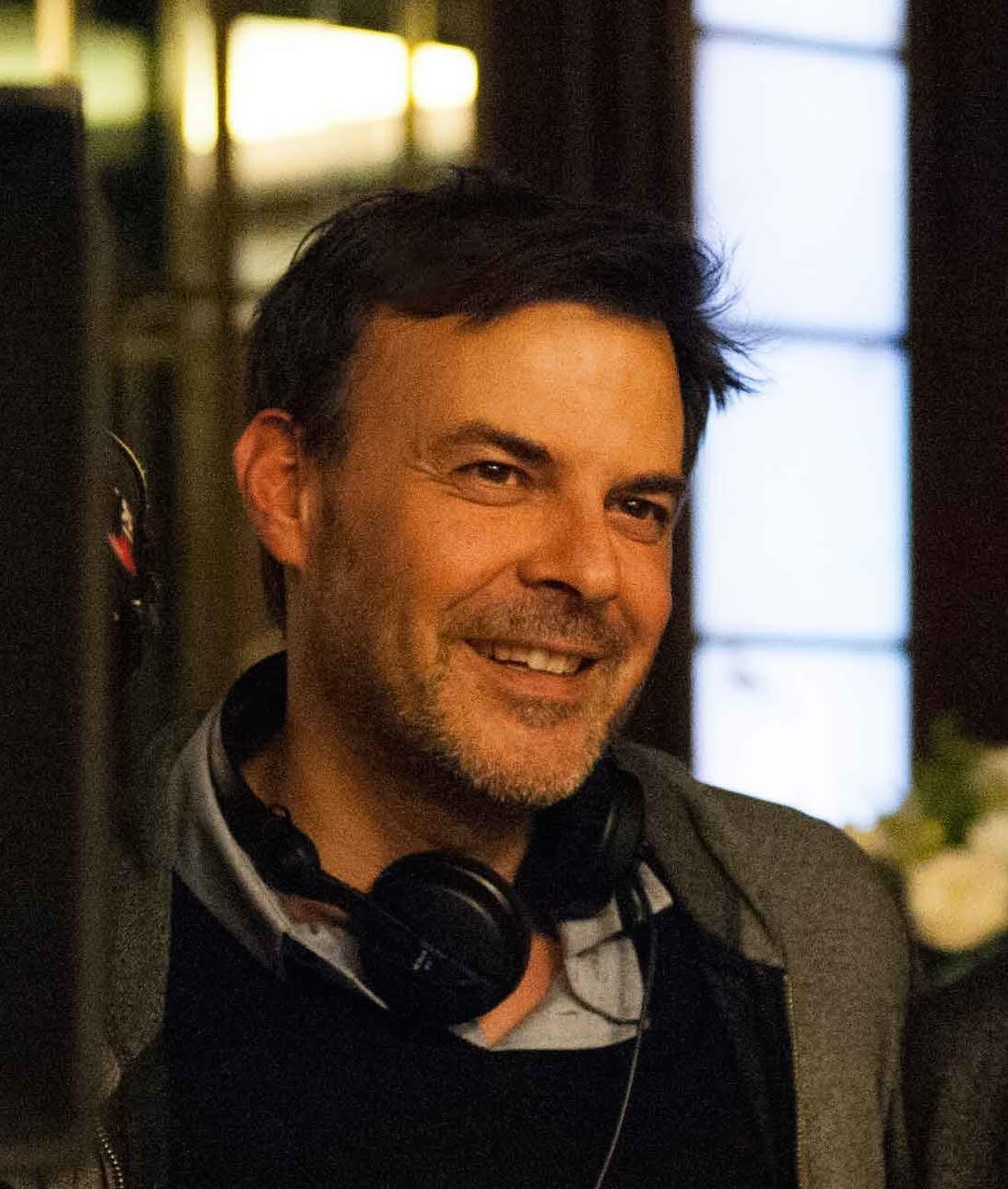
French director François Ozon tells us about the making of his new drama Everything Went Fine, starring Sophie Marceau.
Euthanasia, or assisted suicide, is a controversial topic and one only very few artists dare to tackle in their work. Director François Ozon dives head first into the tricky subject matter, to make a deeply personal film based on a book by his collaborator and friend Emmanuèle Bernheim. We talk to Ozon about adapting the book, working with Sophie Marceau and dealing with such a delicate subject matter.
Emmanuèle Bernheim was your collaborator and your friend. How did you first meet her?
I met her for the script for Under The Sand, which was quite difficult to finance at the time, because nobody wanted to produce it. We loved working together. And after the film was a big hit in France, we worked again together on Swimming Pool and 5×2, and we became good friends. Some years ago, she published a book about the death of her father and she sent it to me asking, ‘Are you interested in making a movie of it?’
I read the book, I loved it, I was very moved. But at this time in my life, I didn’t feel able to adapt it because it was so personal, so intimate. I didn’t find my place. So I said to her, ‘I’m sorry, I’m sure it would be a great movie, but I don’t feel [I’m] able to make it at this moment.’
And very sadly, some years after, she died from cancer. So I read the book again. And reading the book, maybe I had the key. Maybe I felt able to make it. It was a way to work with her again, to still have the link we had together.
What do you think changed? Is it just through your experience as a film director that you felt more confident?
I think her death changed everything. Because she was no longer here, so for me, it was a way to stay with her. And maybe I felt able to understand. I was maybe searching for something to understand her better, I wanted to share her journey with her father.

What was the writing process like?
It was quite easy, because the book is very simple, very well written. It had actions and dialogues like a script. So it was quite easy, but I felt [there were] some gaps in the book. So I needed to do some research. I spoke a lot with her husband, and with her sister who’s still alive, Pascale, and they gave me some elements which were not in the book. And I had the feeling it was important for a film, to develop these different elements.
You wanted to work with Sophie Marceau for quite a long time. What qualities did she possess that you could see your friend in her?
I think she’s a star. In France, she’s very popular. You empathise with her very easily, she’s the kind of person men and women like, in France. Because she’s a beautiful woman, but there is no jealousy. For me, it was important to have a popular actress in the story to empathise with.
I’m always quite interested in when you write and you direct as an artist; then an actor comes in, what do they bring? What did Sophie specifically bring to the role?
When you work with stars, you have to deal with their past life, gossip magazines and their past films. You have to carry all that and you have to work with that. With Sophie, she’s a very natural woman and she has a kind of strength and a force of life [to her]. And I had the feeling Emmanuèle had the same qualities. They are very different physically. If you look at the picture of Emmanuèle Bernheim, she’s totally different, but they have the same kind of energy. Emmanuèle was a tomboy, Sophie Marceau can be very glamorous, but at the same time, in real life, she’s a very natural and very normal girl. She could be the girl next door.

And how did you find André for the role of the father?
André Dussollier is a very popular French actor. I needed someone totally involved, who wouldn’t be afraid each morning to go to the makeup, doing three hours. André is very professional and he loved this character. He had a lot of fun playing this man.
There’s quite a lot of talk about able-bodied actors portraying disabled characters. Were you ever worried about that? Has anyone ever brought that up?
(The translator present notes that this is potentially a concept predominantly in discussion in the UK and US and so translates my question to Ozon.)
I don’t know, an actor has to play something they’re not, the quality of an actor is to be able to play something else. And, of course, it would be stupid to cast a white actor to play a black character. But I won’t ask someone who’s very sick to play a sick man.
Were there a lot of rehearsals?
Some readings but not rehearsals. It was quite funny for the actresses because they were always so involved as daughters because they are daughters in [real] life. Very often in the scenes, they were crying and I said no. I didn’t want tears, the tears are for the end of the film for the audience, but not for the character. I didn’t want to do a sentimental movie.
It’s a very non-sentimental movie. I cried, but it’s also very funny and warm.
The character of André is not very likeable, [he] is a kind of monster, a bad father. She’s a good daughter, but he’s a bad father. And at the moment, she would have him as a friend, more than as a father. And for me, it was important to show that.
It belongs to this generation: don’t express your feelings. My father will be the same. You realise that at the end of the film, he never says thank you to his daughter, after all they’ve done for him. It’s so selfish. And at the same time he’s charming, he has some funny lines. It’s life. You have to like him because he’s your father.

Assisted suicide as a very controversial topic. Is this a political film?
It’s up to you to figure out. For me, the euthanasia subject doesn’t interest me so much. What interests me is the complexity of the relationship in the family and [the] relationship between the father and his daughter. That’s what I love about the story. Euthanasia, I did not have an opinion on before starting the film. By the end, I realised it was not… was not innocent for her to have that on their shoulders – the organisation of the end of her father – it’s not for the children to organise that.
I think we need very strict laws to frame this kind of situation. I realised, too, it’s very unfair because some people who have money, especially in France, can travel to Switzerland or Belgium to die, and some people don’t have money, they have nothing. So it’s unfair.
Did you feel that as a filmmaker you had to convince the viewer of the pros of assisted suicide?
No, I have to ask questions. I ask myself questions and I want to ask you questions, too. You have the opportunity to ask yourself, what would I do if my father asked me such a thing? And I think it’s impossible to give a clear answer before being in this situation. For me, if my father called me and said to me, I want to go to Switzerland. I don’t know what I would… I would say, of course not. But at the end if he’s totally sick, I don’t know.
Everything Went Fine is in cinemas June 17.



